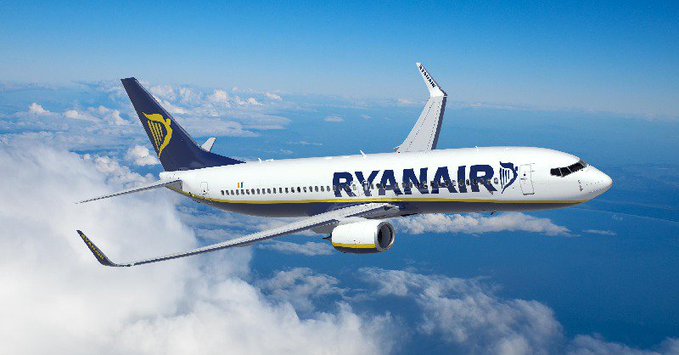Ryanair lifts growth target, says no need for new Boeing order
Europe's largest low cost carrier last week abruptly ended talks with the U.S. planemaker over a new order of the larger 737 MAX 10 jets, worth tens of billions of dollars, due to differences over price. Ryanair now expects to fly 225 million passengers a year by 2026, up from 200 million previously.

Ryanair hiked its five-year passenger forecast on Thursday, saying the delivery of an existing Boeing order and increased use of older planes would allow it to grow faster without the need for an additional large deal. Europe's largest low-cost carrier last week abruptly ended talks with the U.S. planemaker over a new order of the larger 737 MAX 10 jets, worth tens of billions of dollars, due to differences over price.
Ryanair now expects to fly 225 million passengers a year by 2026, up from 200 million previously. Chief Executive Michael O'Leary told Reuters it would sell fewer second-hand planes to meet that target on top of the planned delivery of 210 of Boeing's 197-seat MAX 200 model over the next five years.
It may also buy current-generation planes in small numbers or lease them, he added. The Irish airline's shares were set for their best day in almost a year, up 6.3% after it raised the growth forecast.
"Whenever Boeing is willing to meet our pricing targets then we'd be happy to order more aircraft. In the meantime we have no shortage of aircraft for the next five years," O'Leary said in an interview after the airline's annual general meeting. "I think the step-up (in passenger numbers) is simply a reflection of the fact there's so much pent up demand in Europe, so many gaps have appeared across Europe because other airlines have failed or have cut capacity, and we intend to charge into those gaps," O'Leary added.
Ryanair flew 149 million passengers a year before the pandemic and expects to fly close to 100 million in its financial year to the end of March 2022 as the industry recovers from the disruption of the last 18 months. O'Leary said bookings over the coming months were "patchy", with some periods of extraordinary demand around school holidays in October and at Christmas, while current prices were low.
However, he said he expected ticket prices for short-haul flights across Europe next summer to be significantly higher than they were before the pandemic because there is about 20% less capacity in the market.
(This story has not been edited by Devdiscourse staff and is auto-generated from a syndicated feed.)
ALSO READ
U.S., China to hold more financial shock exercises, Treasury officials say
Shelton outlasts Tiafoe in three sets to win U.S. Men''s Clay Court Championship
Yellen says U.S. will not accept new industries being decimated by cheap Chinese imports
U.S., China to hold more financial shock exercises, Yellen says
U.S. trip will show Japan-U.S. ties are rock solid - PM Kishida










